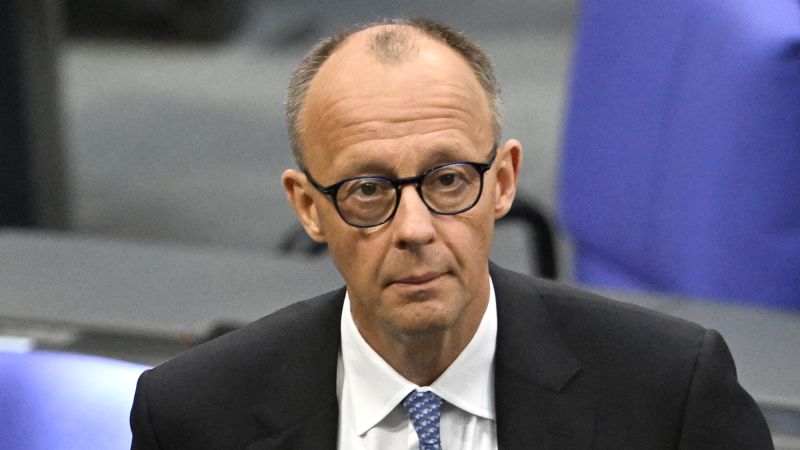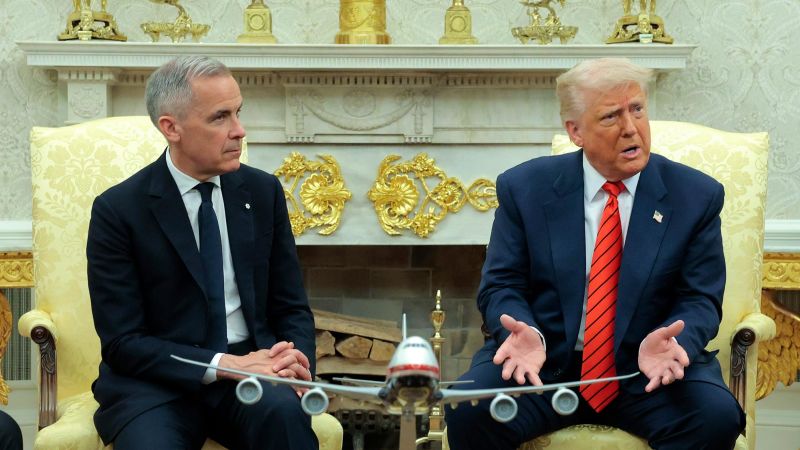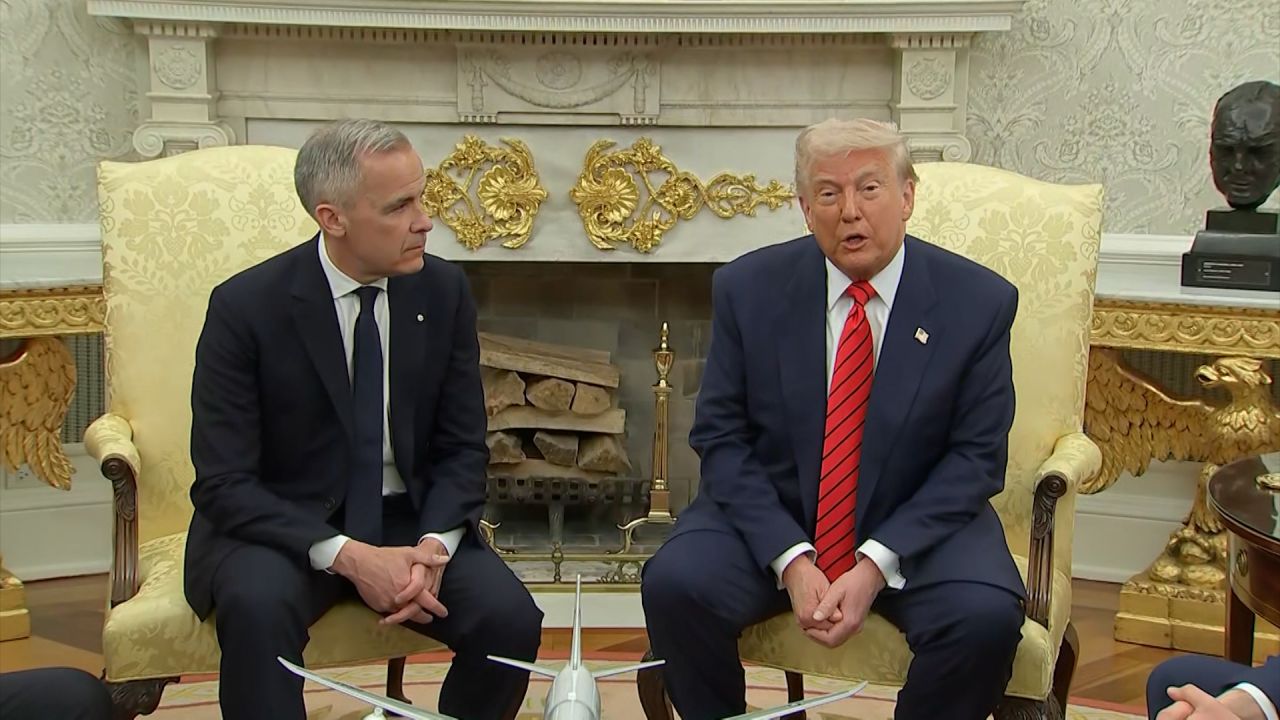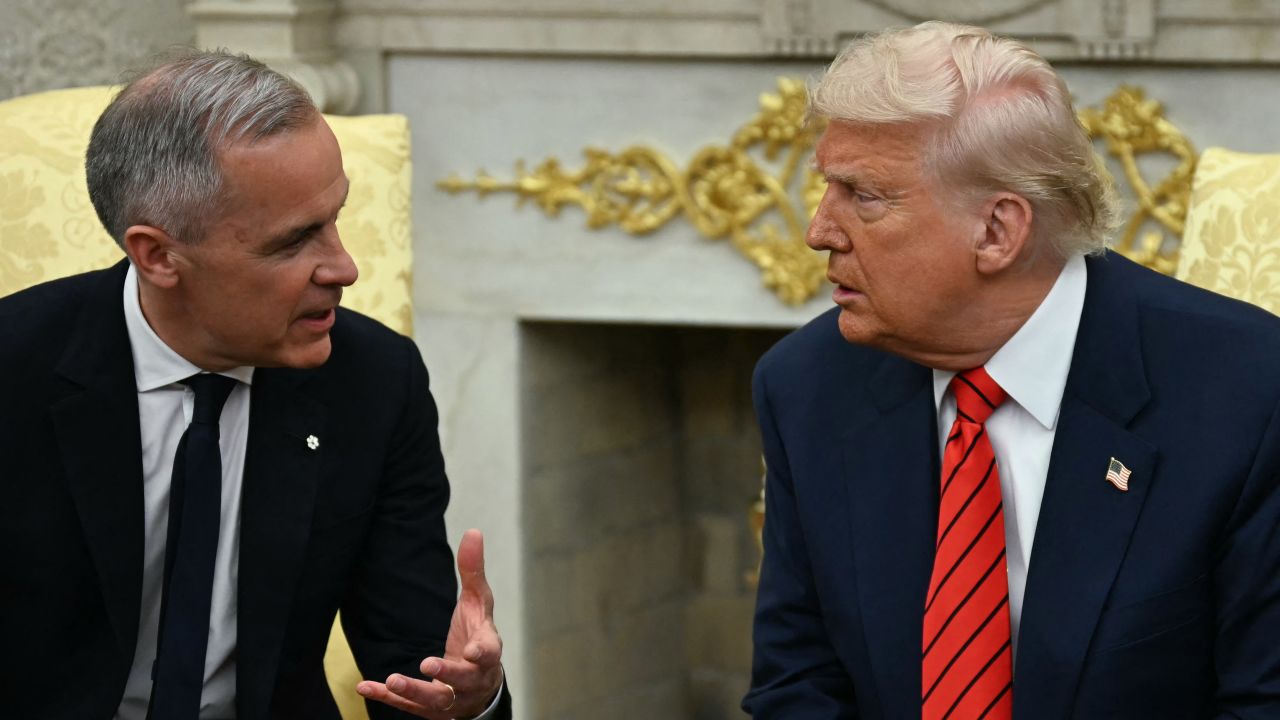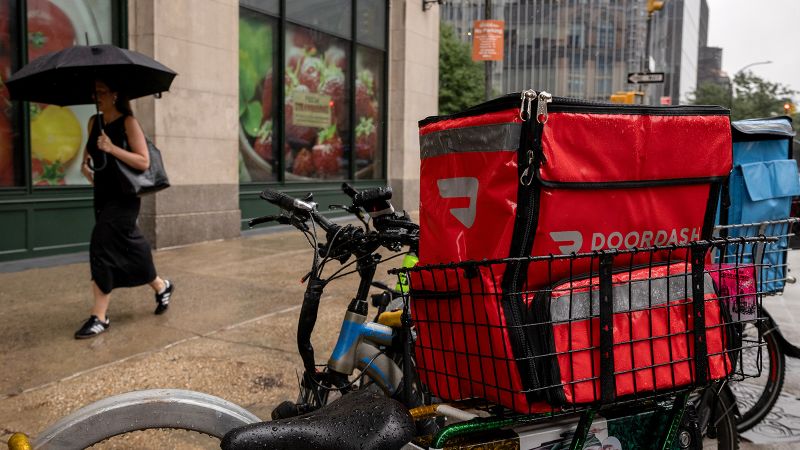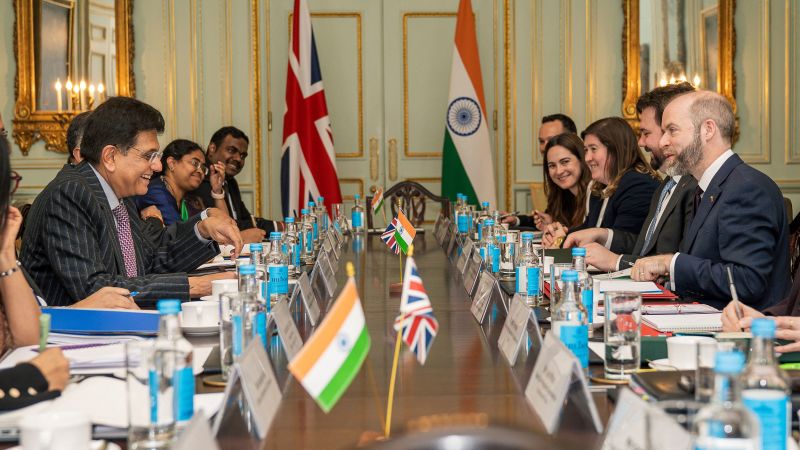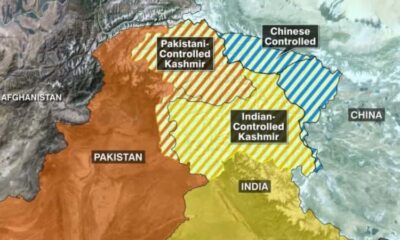CNN
—
It wasn’t the most contentious meeting the Oval Office has ever seen. Nor was it the warmest.
Instead, the highly anticipated meeting Tuesday between President Donald Trump and his new Canadian counterpart Mark Carney fell somewhere in the middle: neither openly hostile nor outwardly chummy, evincing very little neighborliness, at least the type used on neighbors one likes.
The midday talks illustrated neatly the new dynamic between the once-friendly nations, whose 5,525-mile border — the world’s longest — once guaranteed a degree of cooperation but which, to Trump, represents something very different.
“Somebody drew that line many years ago with, like, a ruler, just a straight line right across the top of the country,” Trump said in the Oval Office as his meeting was getting underway. “When you look at that beautiful formation when it’s together – I’m a very artistic person, but when I looked at that, I said: ‘That’s the way it was meant to be.’”
That is not how Carney believes it was meant to be.
“I’m glad that you couldn’t tell what was going through my mind,” Carney told reporters later that day about the moment Trump made that remark.
Still, Carney didn’t entirely hold his tongue.
In a meeting dominated by Trump’s comments — he spoke 95% of the time on all manner of topics, from the Middle East to Barack Obama’s presidential library to the state of high-speed rail in California — it was the new prime minister’s pushback on the president’s ambition to make Canada the 51st US state that stood out.
“As you know from real estate, there are some places that are never for sale,” he said, drawing a begrudging “that’s true” from Trump before Carney carried on.
Carney tells Trump: Canada isn’t for sale
Carney tells Trump: Canada isn’t for sale
02:32
“We’re sitting in one right now. You know, Buckingham Palace that you visited as well,” he continued, as Trump nodded another “true.”
“And having met with the owners of Canada over the course of the campaign last several months, it’s not for sale,” he concluded. “It won’t be for sale ever.”
With that statement, Carney essentially accomplished what he’d come to Washington to do, stating in the clearest terms possible that Canada would not be annexed by its southern neighbor.
Of course, he’s been saying that for weeks, most vocally during last month’s federal election in Canada that saw his Liberals mount a shocking come-from-behind win riding a wave of anti-Trump sentiment.
Before arriving at the White House, Carney also sought to send the message by announcing an upcoming visit from King Charles III, Canada’s official head of state, using the sovereign to make the point that Canada’s sovereignty wasn’t up for debate.
Those messages, if he’s heard them, have not caused Trump to back off, not even when sitting across from Carney in the Oval Office.
“Never say never,” Trump shrugged, as Carney mouthed the word “never” over and over next to him. “I’ve had many, many things that were not doable, and they ended up being doable, and only doable in a very friendly way.”
Still, the president didn’t press the matter further, and the meeting did not fall off the rails. For a topic that has caused so much visceral anger in Canada, the issue was essentially defused, for the time being, in the Oval Office.
After reporters left the room, Carney told Trump it was not “useful” to repeat his idea of annexing Canada.
“But he is the president,” he said recalling the exchange at a solo press conference after the meeting ended, “and he will say what he wants.”
Trump hasn’t, however, deployed the insult against Carney that he used against his predecessor, Justin Trudeau. “As far as calling him Governor Carney, no, I haven’t done that yet — and maybe I won’t,” Trump said at an unrelated White House event later in the day.
Carney said they’d agreed to meet again next month at the G7 summit he is hosting in Alberta, which Trump had previously not committed to attend.
Still, relations between Washington and Ottawa remain at their lowest point in memory.
As Carney was at Blair House, across Pennsylvania Avenue from the White House, preparing to depart for his meeting with Trump, the president launched a broadside on Truth Social, declaring Canada was overly dependent on the United States.
“We don’t need ANYTHING they have, other than their friendship, which hopefully we will always maintain,” Trump wrote. “They, on the other hand, need EVERYTHING from us!”
By the time Carney arrived, however, Trump seemed uninterested in having a public fight.
“We have some tough points to go over, and that’ll be fine,” Trump said after praising Carney for “one of the greatest comebacks in the history of politics.”
See Trump’s answer when asked about lifting Canadian tariffs
See Trump’s answer when asked about lifting Canadian tariffs
01:36
The meeting ended somewhat abruptly with Trump declaring the US did not need Canadian cars or steel, and that there was nothing Carney could say or do that would cause him to lift tariffs.
“Just the way it is,” Trump said.
But by the standards of the Trump White House, where another leader was berated and evicted in the Oval Office earlier this year, it was all relatively mild.
Even Trump acknowledged he’d seen worse.
“We had another little blow up with somebody else,” Trump said, a veiled allusion to his fight with Ukrainian President Volodymyr Zelensky. “That was a much different. This is, this is a very friendly conversation.”
Source link

